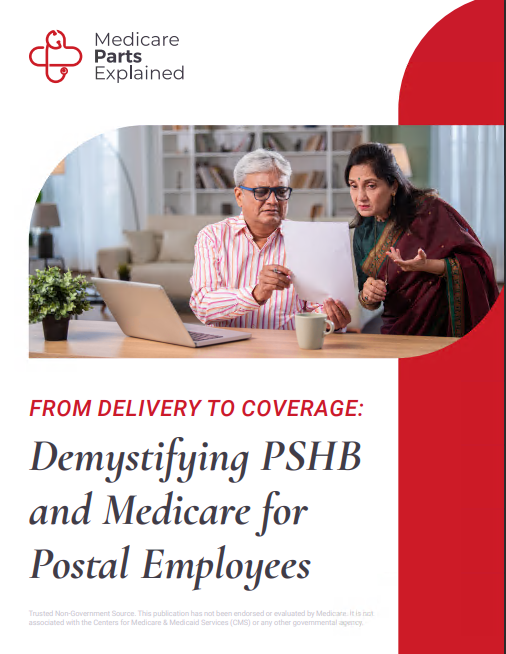Explanation of Premiums, Deductibles, Copayments, and Coinsurance for Each Medicare Part
Introduction to Medicare Costs
Navigating Medicare costs can be complex, with various terms such as premiums, deductibles, copayments, and coinsurance. Understanding these terms and how they apply to each Medicare part is crucial for beneficiaries to manage their healthcare expenses effectively. In this guide, we’ll provide an in-depth explanation of premiums, deductibles, copayments, and coinsurance for Medicare Parts A, B, C, and D, helping beneficiaries make informed decisions about their healthcare coverage.
Medicare Part A, also known as Hospital Insurance, typically does not require a monthly premium for most beneficiaries who have paid Medicare taxes while working. However, there are costs associated with Part A services, including:
- Deductibles: Beneficiaries may be responsible for a deductible for each benefit period, which covers the first 60 days of inpatient hospital care.
- Coinsurance: After the deductible is met, beneficiaries may be responsible for coinsurance for extended hospital stays and skilled nursing facility care.
Medicare Part B Costs
Medicare Part B, also known as Medical Insurance, requires a monthly premium that is typically deducted from beneficiaries’ Social Security benefits. In addition to the premium, beneficiaries may incur the following costs:
- Deductible: Beneficiaries must meet an annual deductible before Medicare begins to pay for covered services.
- Coinsurance and Copayments: After the deductible is met, beneficiaries typically pay 20% of the Medicare-approved amount for most services, while Medicare covers the remaining 80%. Some services may require copayments instead of coinsurance.
Medicare Part C, also known as Medicare Advantage, combines the benefits of Parts A and B and may include additional coverage such as prescription drugs, dental, vision, and hearing services. Costs for Medicare Advantage plans vary depending on the plan’s premiums, deductibles, copayments, and coinsurance. Some plans may have different premium options, including those that require additional payments alongside the Part B premium.
Medicare Part D Costs
Medicare Part D provides prescription drug coverage through private insurance plans approved by Medicare. Costs associated with Part D coverage include:
- Premiums: Beneficiaries pay a monthly premium for Part D coverage, which varies depending on the plan’s coverage and formulary.
- Deductibles: Some Part D plans may have an annual deductible that beneficiaries must meet before coverage begins.
- Copayments/Coinsurance: Beneficiaries may be responsible for copayments or coinsurance for prescription medications, depending on the plan’s cost-sharing structure.
Understanding Cost-Sharing in Medicare
Cost-sharing refers to the portion of healthcare costs that beneficiaries are responsible for paying out of pocket. This can include deductibles, copayments, and coinsurance. Understanding cost-sharing is essential for beneficiaries to budget for healthcare expenses and choose Medicare coverage options that align with their financial needs.
Tips for Managing Medicare Costs
- Research Plans: Compare Medicare plans based on premiums, deductibles, copayments, and coinsurance to find the best fit for your healthcare needs and budget.
- Utilize Preventive Services: Take advantage of Medicare-covered preventive services to help prevent illness and detect health problems early.
- Consider Supplemental Coverage: Explore options for supplemental coverage, such as Medigap plans, to help cover out-of-pocket costs not covered by Original Medicare.
- Review Plan Benefits Annually: Review your Medicare plan benefits annually during the Annual Enrollment Period to ensure your coverage still meets your healthcare needs and budget.
- Seek Financial Assistance: If you have limited income and resources, you may qualify for assistance programs that help cover Medicare costs, such as Extra Help for prescription drug costs.
Conclusion: Empowering Beneficiaries to Manage Medicare Costs
Understanding premiums, deductibles, copayments, and coinsurance is essential for beneficiaries to effectively manage their Medicare costs. By familiarizing themselves with these terms and how they apply to each Medicare part, beneficiaries can make informed decisions about their healthcare coverage and budget for out-of-pocket expenses. Whether opting for Original Medicare, Medicare Advantage, or Medicare Part D prescription drug coverage, beneficiaries can navigate their Medicare options with confidence, knowing they have the knowledge to make informed choices about their healthcare coverage.
Download our free eBook as a supplemental guide to access valuable insights and tips for managing your Medicare expenses effectively. Alternatively, if you need personalized assistance in navigating your Medicare options, connect with our Licensed Insurance Agents listed on our website. Empower yourself to make confident choices about your healthcare coverage and budget for out-of-pocket expenses with the knowledge and support you need.




